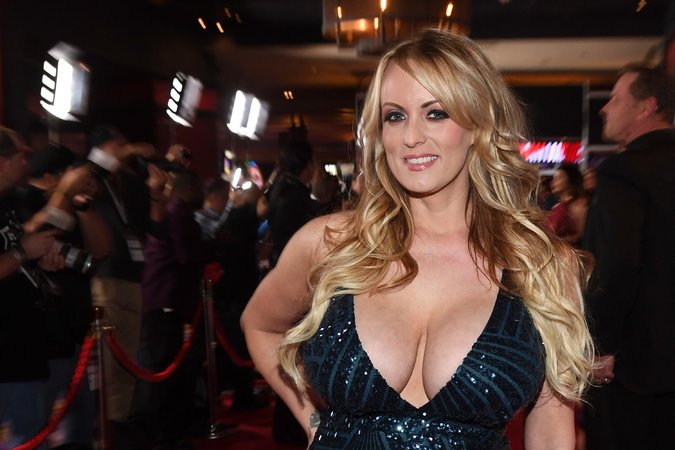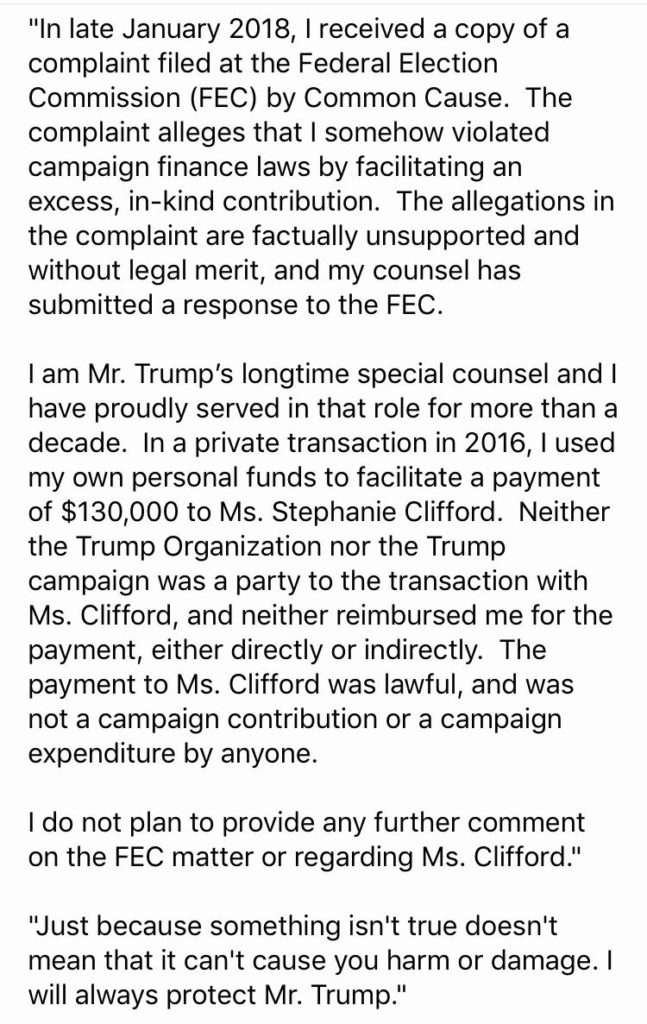Yesterday news broke that longtime Donald Trump attorney, Michael D. Cohen, was responsible for paying $130,000 to porn actress Stephanie Clifford (aka Stormy Daniels) on behalf of Trump in 2016, before the election.
“In a private transaction in 2016, I used my own personal funds to facilitate a payment of $130,000 to Ms. Stephanie Clifford,” Michael Cohen said in a statement. “Neither the Trump Organization nor the Trump campaign was a party to the transaction with Ms. Clifford, and neither reimbursed me for the payment, either directly or indirectly.”
When the underlying stories of they payoff started in January, many folks immediately started looking to see if such a payment violated campaign finance laws. And indeed, that is what most of his statement addressed yesterday.
But I’m looking at the New York Rules of Professional Conduct. Those of us in the personal injury bar know, for example, that advancing funds to clients is a big fat no-no. Does the same provision apply here?
The relevant rule reads as follows:
RULE 1.8:
CURRENT CLIENTS:
SPECIFIC CONFLICT OF INTEREST RULES
(e) While representing a client in connection with contemplated or pending litigation, a lawyer shall not advance or guarantee financial assistance to the client…
OK, you see that ellipses and you want to know what comes after, right? There are three exceptions, each of which invite an investigation to see if they apply:
(1) the transaction is fair and reasonable to the client and the terms of the transaction are fully disclosed and transmitted in writing in a manner that can be reasonably understood by the client;
(2) the client is advised in writing of the desirability of seeking, and is given a reasonable opportunity to seek, the advice of independent legal counsel on the transaction; and
(3) the client gives informed consent, in a writing signed by the client, to the essential terms of the transaction and the lawyer’s role in the transaction, including whether the lawyer is representing the client in the transaction.
The full statement is below and you can decide for yourself if you think it looks like an advance or guarantee of financial assistance (not because Trump needs it, but to hide it). (Edit: Whether there was litigation involved — matrimonial or contract? — is impossible for us to know from here.) Another problem may be that, from Trump’s perspective, this isn’t a transaction if he claims not to be repaying the money.
At the very least, it seems that Cohen has invited an investigation from the Disciplinary Committee. I’ve long said that Trump is a one-man bar exam with never-ending legal issues unlike any other person. That pattern continues today.
The statement:

